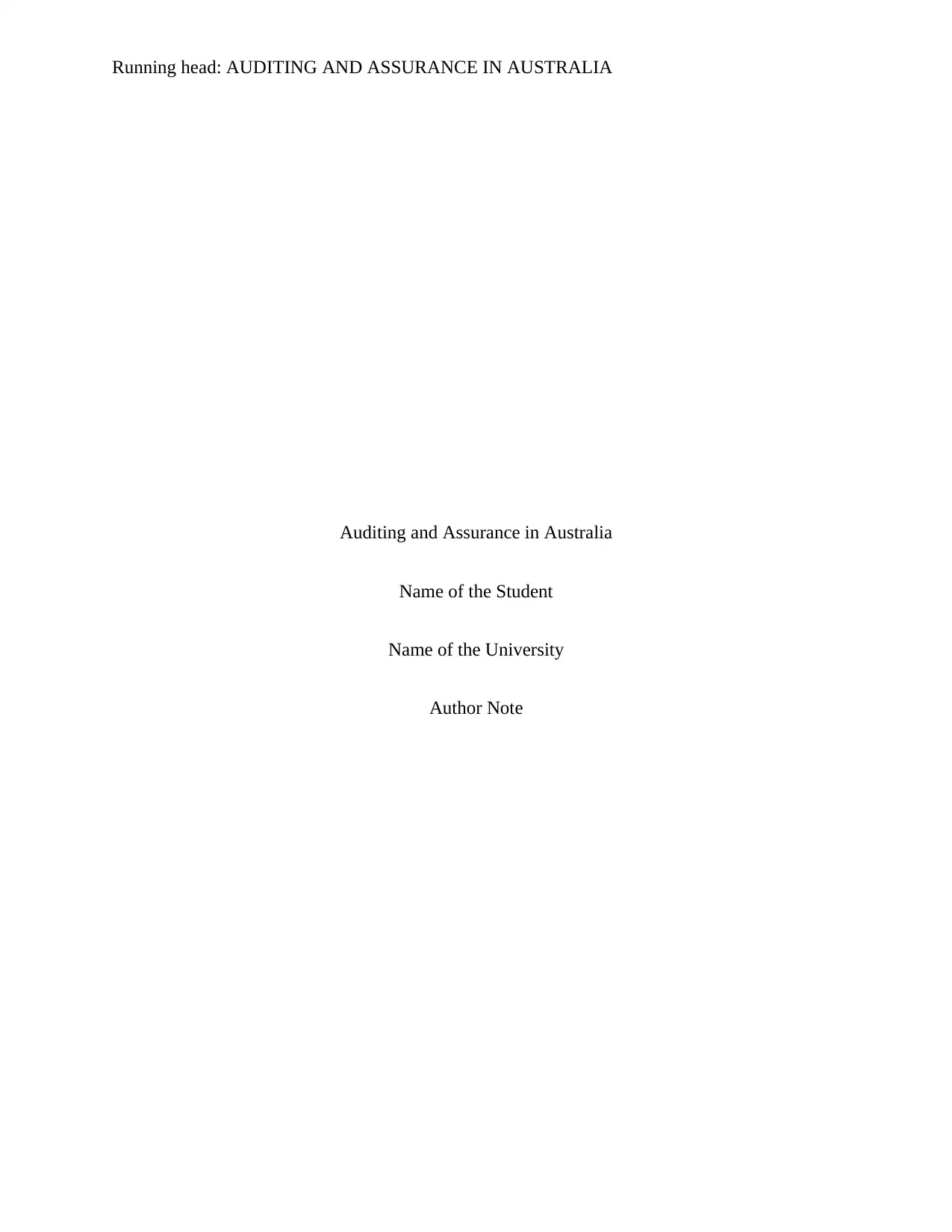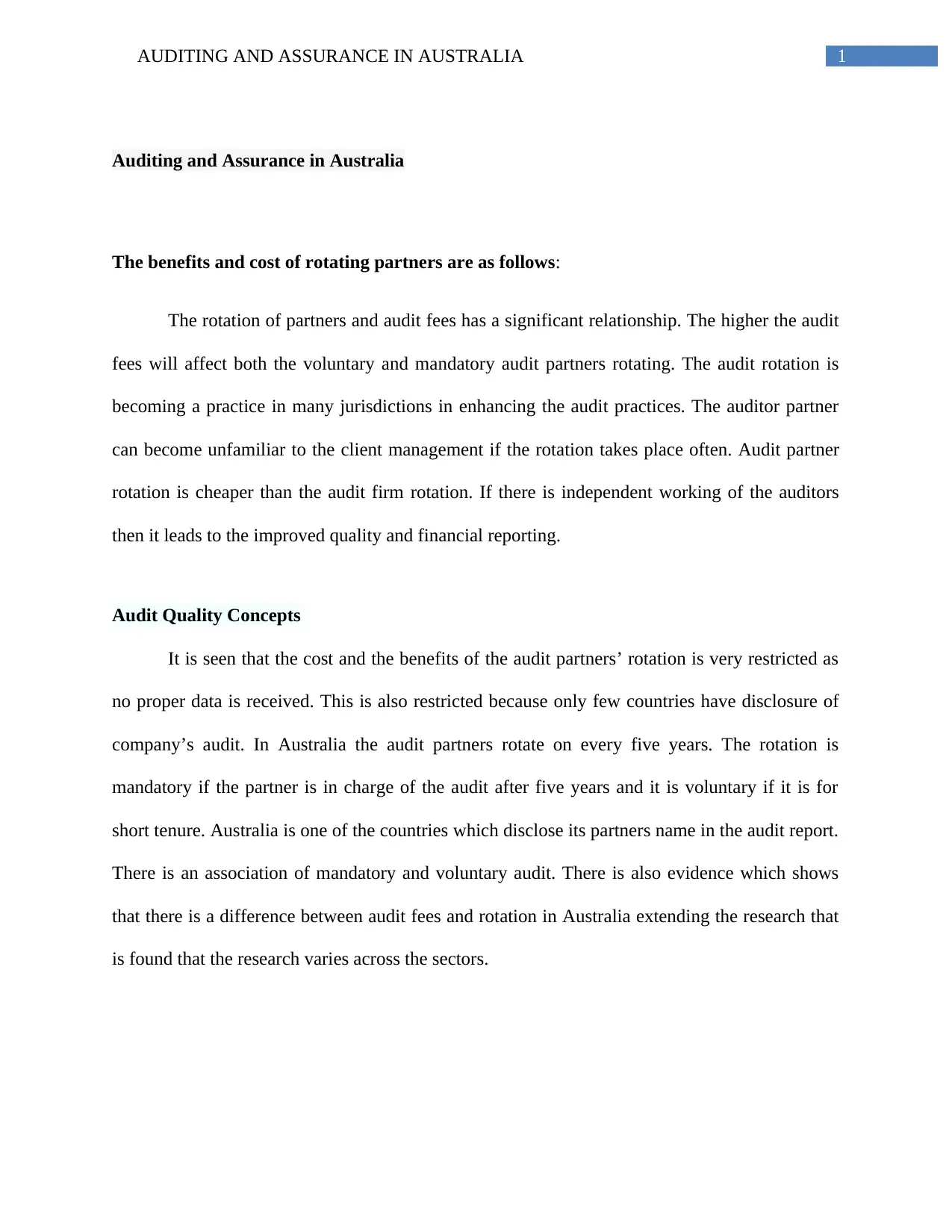Auditing and Assurance in Australia - Audit Partner Rotation Impact
VerifiedAdded on 2020/04/01
|2
|276
|461
Report
AI Summary
This report delves into the effects of audit partner rotation in Australia, exploring its impact on audit fees, financial reporting, and audit quality. The study examines both mandatory and voluntary audit partner rotations, highlighting the relationship between partner turnover and audit fees. It discusses the costs and benefits associated with partner rotation, including the potential for improved quality and the challenges of partner unfamiliarity with clients. The research also considers the influence of audit partner rotation on various sectors and includes a discussion on the disclosure of partner names in audit reports, a practice unique to Australia. The analysis considers the significance of audit partner rotation in enhancing the audit practices and provides insights into the complexities of audit partner rotation. The report concludes by discussing the benefits of the audit partner rotation and how it is cheaper to rotate the audit partners than rotating the audit firm.
1 out of 2








![[object Object]](/_next/static/media/star-bottom.7253800d.svg)